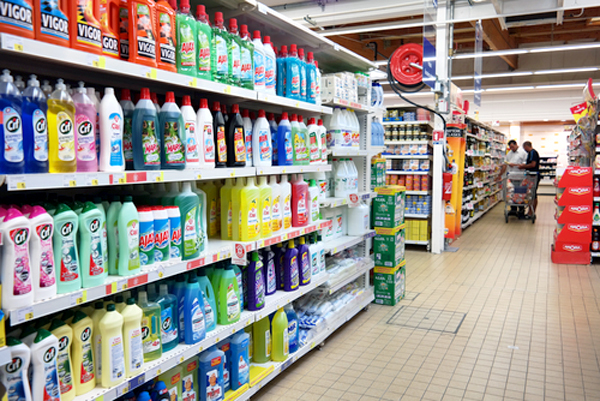
8 Toxic Products You Should Not Bring in Your Home Natural Alternatives
There are a lot of common household products almost everyone has on hand and probably never thinks much about. Your parents had them and now so do you. But a lot of these common products are toxic, something we know more about now than your family did back in the day.
November 26, 2014 | Source: Eco Watch | by Anastasia Pantsios
For related articles and more information, please visit OCA's Coming Clean Campaign page and our Myth of Natural page.
There are a lot of common household products almost everyone has on hand and probably never thinks much about. Your parents had them and now so do you. But a lot of these common products are toxic, something we know more about now than your family did back in the day. So you might want to avoid some of these items and look for some house-healthier substitutes.
1. Non-stick cookware may save you some cleaning time, some elbow grease and some scouring pads, but at high temperatures the polytetrafluoroethylene (PTFE) that makes Teflon non-sticky gives off toxic gases that have been linked to reproductive problems, cancers and other health issues. It's best to opt for stainless steel or iron skillets, or if you must use non-stick pans, cook at lower temperatures.
2. We know how bad plastic bottles and other containers are for the environment, especially if you just toss them in the trash after using the contents. But they can also leach chemicals into whatever you're drinking. Watch out especially for the hormone-disrupting, possibly birth defect-causing Bisphenol A (BPA). Many plastic products promote they are now BPA-free, but that isn't the only potentially harmful chemical they can shed. It's safer to use a glass.
3. When you see roaches or ants in your house, it's natural to want to dash out and grab the first high-power pesticide you see on the shelf. Hold that disgust! Try a natural solution: one of many insect repellent herbs, such as mint or tansy, or some vinegar or lemon juice sprinkled along their entrance points and other places where they hide.
4. "Germ-killing" hand soaps and other antibacterial products are full of chemicals but have become widespread due to the public's overblown fears of catching something (ebola! ebola!). In addition, killing off germs indiscriminately can hinder the immune system's own defenses, eliminating good bacteria along with the bad. There's a lot to be said for more environmentally friendly and healthful soap and water.
